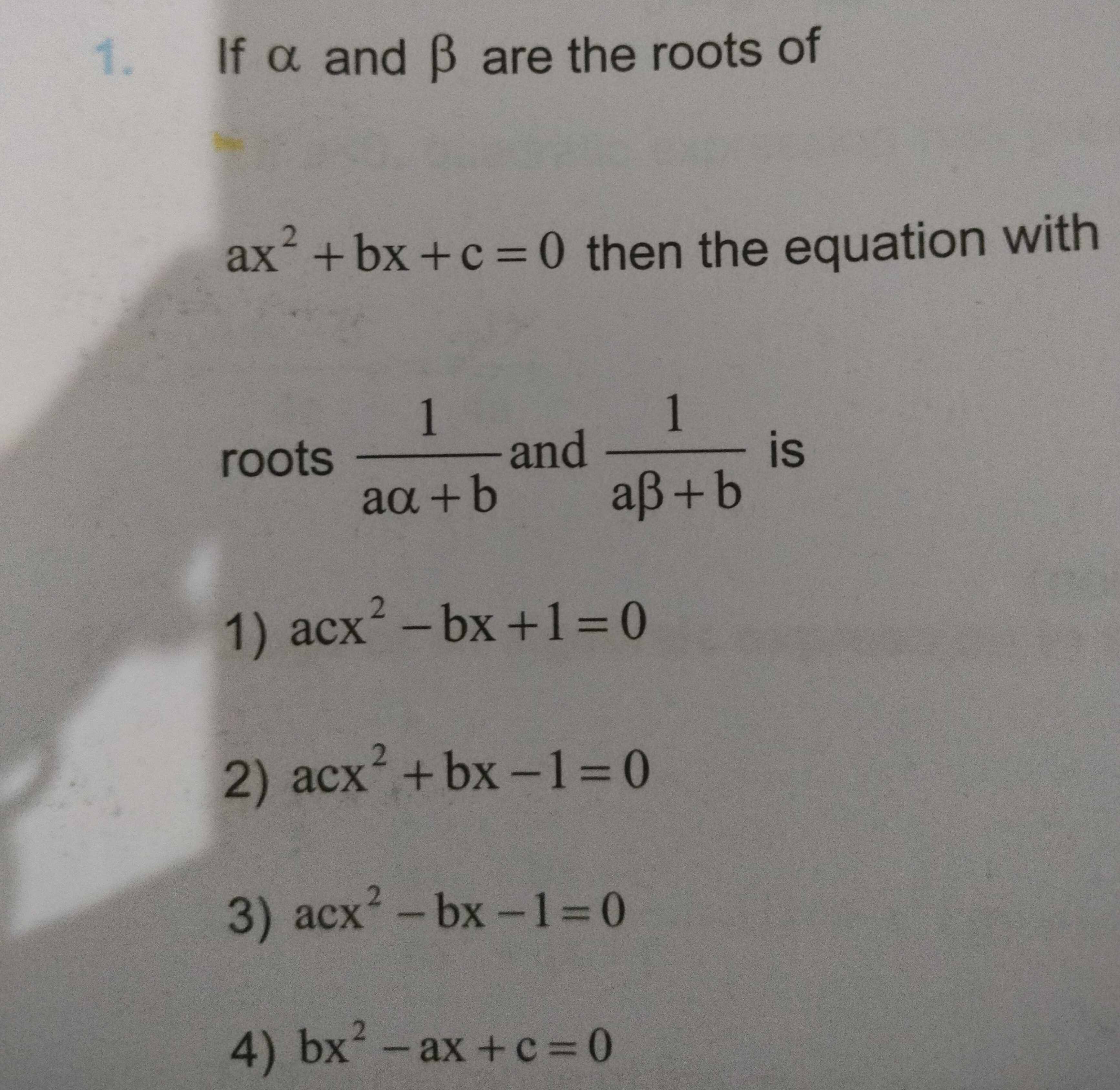Question
Question: If $\alpha$ and $\beta$ are the roots of $ax^2 + bx + c = 0$ then the equation with roots $\frac{1}...
If α and β are the roots of
ax2+bx+c=0 then the equation with roots aα+b1 and aβ+b1 is

A
acx2−bx+1=0
B
acx2+bx−1=0
C
acx2−bx−1=0
D
bx2−ax+c=0
Answer
- acx2−bx+1=0
Explanation
Solution
Given the quadratic equation ax2+bx+c=0 with roots α and β. From the equation aα2+bα+c=0, we can write α(aα+b)=−c, which means aα+b=−c/α. Similarly, aβ+b=−c/β. The new roots are y1=aα+b1=−c/α1=−cα and y2=aβ+b1=−cβ. The sum of the new roots is S′=y1+y2=−cα+β. Since α+β=−b/a, we have S′=−c−b/a=acb. The product of the new roots is P′=y1y2=(−cα)(−cβ)=c2αβ. Since αβ=c/a, we have P′=c2c/a=ac1. The new quadratic equation is y2−S′y+P′=0. Substituting S′ and P′:
y2−acby+ac1=0
Multiply by ac to clear denominators:
acy2−by+1=0
Replacing y with x gives acx2−bx+1=0.
